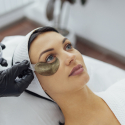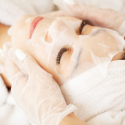Micellar Water: Benefits, Drawbacks, and Essential Insights
 Micellar water has gained immense popularity as a skincare product due to its multifaceted benefits and ease of use. It’s widely used for cleansing and removing makeup, but understanding its full range of advantages and potential drawbacks is crucial for maximizing its effectiveness. This comprehensive guide delves into the properties of micellar water, its benefits, and considerations to keep in mind.
Micellar water has gained immense popularity as a skincare product due to its multifaceted benefits and ease of use. It’s widely used for cleansing and removing makeup, but understanding its full range of advantages and potential drawbacks is crucial for maximizing its effectiveness. This comprehensive guide delves into the properties of micellar water, its benefits, and considerations to keep in mind.1. What is Micellar Water?
Composition and Functionality
Micellar water is a gentle cleansing solution that contains micelles—tiny clusters of surfactant molecules suspended in water. These micelles act like magnets, attracting and trapping dirt, oil, and impurities from the skin’s surface. This unique formulation allows micellar water to clean the skin effectively without the need for rinsing.
How It Works
When applied to the skin, the micelles in the water bind with excess oils and impurities, lifting them away from the skin. This process results in a thorough cleanse without harsh rubbing or the need for additional cleansing products. Micellar water is designed to be used with a cotton pad, making the application both simple and efficient.
2. Advantages of Using Micellar Water
Gentle and Non-Irritating
One of the primary benefits of micellar water is its gentle nature. It is suitable for all skin types, including sensitive skin, as it cleanses without stripping the skin of its natural moisture. The absence of alcohol and harsh chemicals in most micellar waters makes it a mild alternative to traditional cleansers.
Convenient and Multifunctional
Micellar water excels in its versatility. It serves multiple purposes, including makeup removal, facial cleansing, and even hydrating the skin. Its ability to perform these tasks with a single product saves time and reduces the number of products needed in your skincare routine.
Hydration and Freshness
Many micellar waters are formulated with additional hydrating ingredients such as glycerin or botanical extracts. This added moisture helps to keep the skin feeling fresh and supple, making it a great option for those seeking both cleansing and hydration in one step.
3. Potential Drawbacks of Micellar Water
May Not Remove Heavy Makeup Completely
While micellar water is effective for removing light makeup and daily impurities, it may struggle with more stubborn or waterproof makeup. For such cases, additional cleansing products might be necessary to ensure thorough removal.
Possibility of Residue
Some users report that micellar water can leave a slight residue on the skin, which might not be ideal for those who prefer a completely clean feeling. This residue can sometimes be felt after the product has been used, leading to a need for additional rinsing or toning.
4. Best Practices for Using Micellar Water
Application Tips
To achieve the best results, apply micellar water to a cotton pad and gently wipe it over your face. There’s no need to apply excessive pressure; a light touch is usually sufficient to remove dirt and makeup. Avoid using micellar water on the eyes if it causes irritation, and opt for a specialized eye makeup remover if needed.
Incorporating into Your Routine
Micellar water can be used both morning and evening as part of your skincare regimen. For an effective cleansing routine, use it as the first step in the evening to remove makeup and impurities before following up with a more comprehensive skincare regimen. In the morning, it can be used to freshen up your skin before applying other products.
5. Choosing the Right Micellar Water
Selecting Based on Skin Type
When choosing a micellar water, consider your skin type and any specific concerns you may have. For sensitive skin, look for formulas labeled as hypoallergenic or free from artificial fragrances and dyes. Those with oily skin might benefit from micellar waters designed to control excess sebum and reduce shine.
Evaluating Ingredients
Review the ingredient list to ensure that the micellar water contains beneficial components such as soothing botanicals or hydrating agents. Avoid products with high concentrations of alcohol or other harsh ingredients that could potentially irritate the skin.









